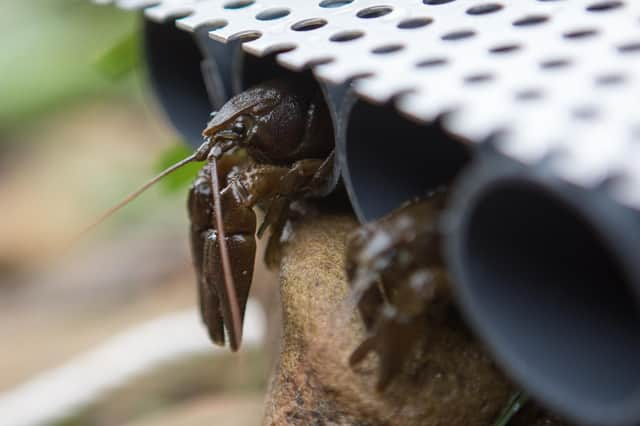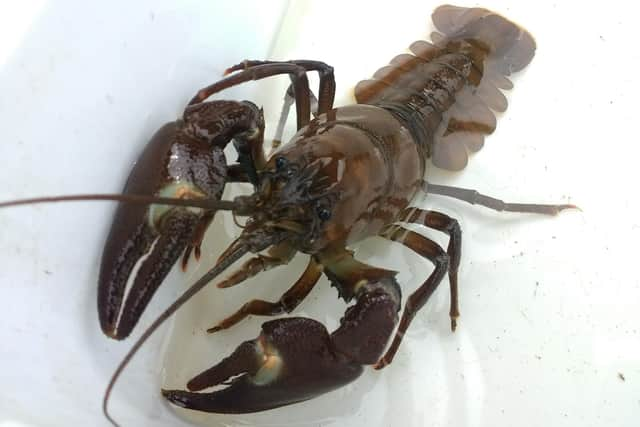Call for people to help white-clawed crayfish


It comes after increased reports of invasive American signal crayfish being present in the nearby River Coquet.
Signal crayfish carry a plague disease that is fatal to the native species.
Advertisement
Hide AdAdvertisement
Hide AdScott Mackenzie, Environment Agency biodiversity technical specialist, said: “At the moment, it is difficult to say how extensive the signal crayfish population is in the River Coquet, but it is essential that we take every step to prevent their spread.


“River users should Check – Clean – Dry their footwear, equipment and even their dogs after spending time in and around watercourses.
“Anything that has made contact with the water and riverbank needs to be cleaned thoroughly after use with warm water and environmentally friendly detergent. Then fully dried for 48 hours to make sure all parasites are killed.
“This will help stop the disease spreading from one watercourse to another.
Advertisement
Hide AdAdvertisement
Hide Ad“The American species of crayfish is bigger and most importantly, it also carries a fungal disease known as crayfish plague that has wiped out our native crayfish from most rivers in the south of England.”
The River Wansbeck is one of the last native crayfish strongholds in the country.
Report a sighting of signal crayfish in the River Coquet or the River Wansbeck online at www.ericnortheast.org.uk/recording-wildlife-2